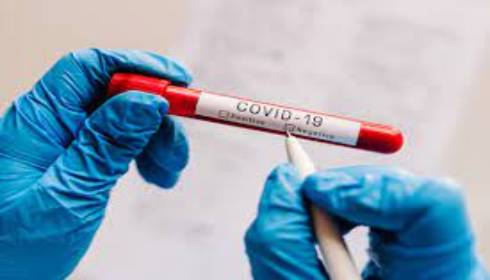
Blood test immediately after infection can predict disease severity in COVID19, finds study
Rajeev Choudhury
Blood samples taken from patients shortly after they were infected by the SARS-CoV2 virus may indicate, who is likely to be hospitalised, investigators from Sanford University have reported in a recently published study.
The study titled ‘Early non-neutralizing, afucosylated antibody responses are associated with COVID19 severity’ was led by Taia Wang, MD, PhD, assistant professor of infectious diseases and of microbiology and immunology was published in the journal Science Translational Medicine in January 2022.
“We’ve identified an early biomarker of risk for progression to severe symptoms,” said Taia Wang, MD, PhD, assistant professor of infectious diseases and of microbiology and immunology.
“And we found that antibodies elicited by an mRNA vaccine — in this case, Pfizer’s — differ in important, beneficial ways from those in people infected with SARS-CoV2 who later progress to severe symptoms,” she added.
The upshot could eventually be a test that, given soon after a positive COVID19 result, would help clinicians focus attention on those likely to need it most.
Lead co-authors of the study are Stanford postdoctoral scholar Saborni Chakraborty, PhD, and graduate student Joseph Gonzalez.
To find out why a minority of the people among those infected with the SARS-CoV2 virus develop an excessive inflammatory response, Wang and her colleagues collected blood samples from 178 adults who had tested positive for COVID19 upon visiting a Stanford Health Care hospital or clinic. All the individuals showed mild symptoms at the time of testing; 15 participants developed severe symptoms and needed to be admitted to the emergency department.
Analysis of the antibody in the blood samples taken during admission and after 28 days showed certain notable differences between those who developed severe symptoms and the others.
Antibodies, the Y shaped protein produced by the immune cells in response to the presence of foreign bodies or pathogens bind with the pathogens to prevent them from duplicating in the host cells. If this binding is not strong enough, the pathogens are able to replicate and cause damage to the host cells. However, in either case, the host body generates a mechanism called immune response that is characterised by congregation of host of immune cells to the site.
The researchers found that the participants who needed to be hospitalised had initially minimal or undetectable levels of these antibodies called neutralizing antibodies, although their immune cells started pumping them out later in the infection’s course.
Apart from this, the researchers also found that in participants who progressed to severe COVID19, sugar chains found on the ‘trunk’ of certain antibodies targeting SARS-CoV2 were deficient in a variety of sugar called fucose during the first test indicating that they were not as a result of progress in the infection but preceding it.
Moreover, the immune cells of such patients had a high concentration of CD16-a receptors, which are the receptor of fucose-lacking antibodies and are known to boost the inflammatory activity of the immune cells.
“Some inflammation is absolutely necessary to an effective immune response,” Wang said.
“But too much can cause trouble, as in the massive inflammation we see in the lungs of people whose immune systems have failed to block SARS-CoV2 quickly upon getting infected” she added.
Analysing the blood samples of 29 vaccinated people, who had been vaccinated with Pfizer’s m-RNA vaccine and comparing the antibody profile with that of people who had shown mild symptoms, the researchers found that both groups had a high amount of antibody fucose content, which the participants who progressed to severe disease did not have.
Wang said that when the identified immunological factors, namely a sluggish neutralising-antibody response, deficient fucose levels on antibody-attached sugar chains, and hyperabundant receptors for fucose-deficient antibodies are considered individually, they predicted a modest rise in the COVID19 severity, however, when taken together, they allowed the scientists to guess the disease’s course with an accuracy of about 80%.
“These findings begin to suggest that an early assessment for non-neutralizing, afucosylated IgG1 may be able to identify those patients at risk of developing a severe disease in response to SARS-CoV2 infection or infection by other viruses,” the researchers concluded.